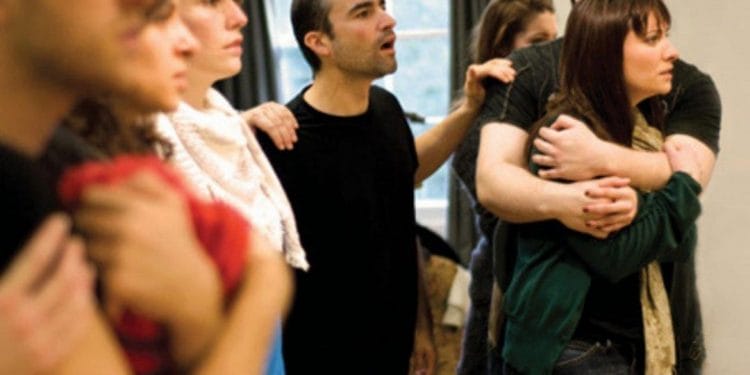This summer, Drama Studio London’s first cohort of BA graduates will enter the theatre industry. DSL was founded 50 years ago with its courses designed to give aspiring actors the best grounding in skills to prepare for a professional career. With past alumni including Olivia Vinall, Emily Watson, Forest Whitaker, Enzo Cilenti and Cory English, there can be no doubt of the talent nurtured by this illustrious school. The Class of 2019 will graduate with the new Bachelor of Arts in Professional Acting course, in conjunction with De Montfort University.
Managing Director, Kit Thatcher joined us to tell us more.
Tell us about Drama Studio London and your role?
DSL is 53 years old. We began with a one-year course for mature students, and that course is still going strong; though the mature bit often has little to do with age.
We are a small school of a little over 100 students, every one of whom has a single focus: to be a professional actor and the most creative, passionate and skilled person they can be.
We believe that acting is a craft and an art. Students are chosen for certain natural qualities that are hard to instil, like a burn to perform, a degree of natural talent, and a joyful approach to working with others so that we can then feed, direct and encourage all that the student brings. What we can instil is a strong work ethic, an awareness of personal strengths, a range of skills to enhance performance and lots of practice followed by detailed, caring feedback.
Peter Brook says that the best of theatre appeals to our emotions, our intellect and our innate sense of joy. That’s the target for all of us.
My title is Managing Director. I direct the managers and I manage the direction.
Your first cohort of BA students will graduate this summer, how does that make you feel?
Confident. They have developed into honest and engaging performers who will make a mark in the profession and add some joy and thought to these desperate times.
Why did DSL want to start this course?
It was a difficult decision. No one worth their salt who runs an audition will ever say, “Oh, I see you have a 2.1 in performing arts”. However, I hope they will say “Oh, I see you trained at DSL” (or any other FDS drama school).
The deciding factors for me were partly being able to add the ‘luxury’ of three-year training, but mainly it was being able to open up to a more diverse intake.
Most of our students work very hard to get here. Even after they’ve started, we have had students working all night in supermarkets or on the London Underground in order to reach for their dreams.
However, the opportunity to access student loans enables an authentic reflection of society.
I still believe that actor training must be vocational. Awareness, skills, practice; that is all we do. You can’t get much of that out of a book.
How have you worked with De Montfort University?
Very well, it has been a good partnership. We had conversations with two universities before talking to DMU. Neither of them ‘got it’. They did not understand what actor training was. You cannot do it in 20 hours a week, you cannot do it by going to lectures or sitting all day in a library. DMU understood this and we have been true partners. Working things through to find what is best for each individual student. We’re not interested in dogmatism. Let’s start from ‘I don’t know’ or ‘what about?’. Conversations with the Drama team at DMU have been like that.
What experience do you think these students will have gained that they wouldn’t have received elsewhere?
I went to the Bristol Old Vic and I have directed at several other great FDS drama schools, but it’s difficult to pinpoint the specific factors that make us unique. So – I guess – every student here is training to be a professional actor. Every faculty member is a practising professional and that means that all conversations could be very meaningful, though maybe it would be good to come out of rehearsals occasionally and bump into a physicist.
The diversity of our students is important, and the age diversity is something we value. With the degree we have some students here starting at 18 and on the diploma course we regularly have 50-year-olds. At several points during the courses they work with each other.
All our teaching and directing staff are working professionals. We have no full-time front-line staff. Everyone is expected to go out in the profession, work and bring back findings and ideas. DSL is a great place for both students and staff.
What feedback have students given about the course?
There are many opportunities for the students to give feedback; and they do! The main positives from feedback given by students are:
- The audition process we operate where every applicant gets at least 3 hours of workshops and auditions, and those who are recalled get 6 hours. Each person gets detailed feedback whether they are offered a place or not.
- The tutor system which guides and leads at every step.
- The knowledge and approach of the staff.
- The ‘family feel’ of the school.
- The professional preparation for students.
They also make suggestions for changes to the syllabus, often not for themselves but for future intakes.













